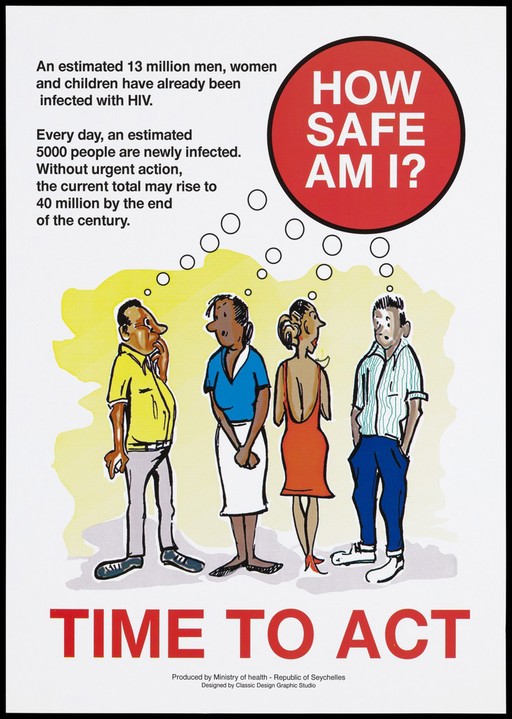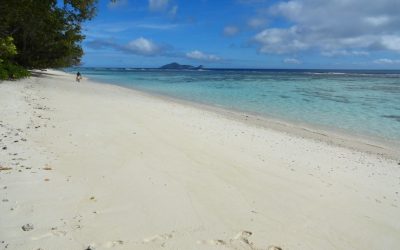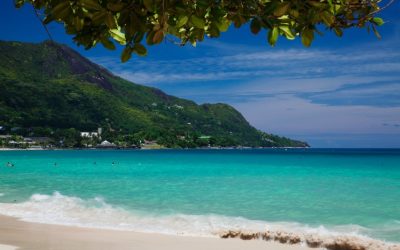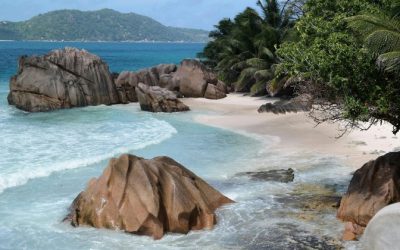Overview of Safety in Seychelles
Seychelles is generally considered a safe destination for travelers, offering a peaceful environment and welcoming communities. Visitors often enjoy the beautiful beaches, outdoor activities, and rich cultural heritage with minimal concerns about safety. However, like any travel destination, it’s important to stay aware of your surroundings and follow local guidelines to ensure a trouble-free experience. This overview provides an insight into the safety considerations travelers should keep in mind when visiting Seychelles.
General Safety Perceptions
Seychelles is generally regarded as a safe destination for travelers, with most visitors experiencing minimal safety concerns during their stay. The country benefits from a low crime rate compared to many other tourist destinations, contributing to a sense of security among visitors and locals alike.
- Crime levels are relatively low, especially in tourist areas, but visitors should still exercise caution with their belongings.
- Petty theft, such as pickpocketing and bag snatching, can occasionally occur, particularly in crowded places.
- Scams targeting tourists are rare but can happen, so staying vigilant is advised.
- Health safety is generally good; however, travelers should take standard precautions against mosquito-borne illnesses like dengue.
- Natural hazards such as rough seas and strong currents require caution when swimming or participating in water activities.
- Practice common safety measures, such as avoiding isolated areas at night and safeguarding valuables.
- Stay updated on local advisories and follow guidance from local authorities or your accommodation providers.
- Respect local customs and regulations to ensure a safe and enjoyable experience.
Recent Safety Statistics
Seychelles is generally considered a safe destination for travelers, with a low crime rate compared to many other tourist destinations. Visitors can enjoy the beautiful beaches and natural attractions with confidence, though standard travel precautions are advisable. Recent safety statistics indicate relatively stable security levels across the islands, making it an appealing choice for leisure and adventure travelers alike.
Recent safety data highlights the following key points:
- Crime rates remain low, particularly in tourist areas, with theft being the most common issue faced by visitors.
- Violent crimes are rare, but petty crimes such as pickpocketing and bag snatching can occur, mainly in crowded places.
- Traffic accidents have decreased slightly due to improved road safety measures, but caution is advised when driving or riding motorbikes.
- Environmental hazards, such as tropical storms, are unpredictable but well-monitored by local authorities.
- Health safety is generally good, with accessible medical facilities and low incidence of communicable diseases.
Traveler Reports and Experiences
Seychelles is generally considered a safe destination for travelers, with low crime rates and a welcoming atmosphere. Visitors often report feeling secure while exploring the islands, whether they are relaxing on pristine beaches or venturing into local towns. Most safety concerns tend to be minor, such as petty theft or pickpocketing, which can be easily avoided by taking basic precautions. Travelers also note that the local police and tourist authorities are approachable and helpful, contributing to a reassuring environment.
Throughout various traveler reports, many have shared positive experiences, emphasizing the friendliness of Seychellois people and the well-maintained infrastructure. Some common safety tips include keeping valuables secure, avoiding isolated areas at night, and being cautious when swimming or participating in water activities. Overall, visitors often conclude that Seychelles offers a safe and enjoyable setting for a memorable vacation, provided that standard safety measures are observed.
Crime and Personal Security
Crime and personal security are important concerns for anyone considering travel to or residing in Seychelles. Understanding the safety levels, common types of crime, and recommended precautions can help visitors enjoy their stay with confidence. This overview aims to shed light on what to expect in terms of safety in Seychelles and how to stay protected while exploring this beautiful island destination.
Common Types of Crime
Seychelles is generally considered a safe destination for travelers, but understanding the common types of crime can help ensure personal security. While violent crime is relatively low, petty crimes such as pickpocketing, bag snatching, and scams can occur, especially in crowded areas or tourist hotspots. Tourists are advised to remain vigilant about their belongings and avoid displaying expensive items in public. Incidents of theft on beaches, in hotel areas, or during transportation have been reported, making it important for visitors to exercise caution. Crime rates tend to be lower in comparison to many other destinations, but personal security measures are still necessary to enjoy a safe visit to Seychelles.

Safe Practices for Tourists
Seychelles is generally considered a safe destination for tourists, with a low crime rate and friendly locals. However, travelers should still exercise caution to ensure a trouble-free visit. Basic safety measures include guarding personal belongings, avoiding isolated areas at night, and being aware of their surroundings. It is advisable to keep valuables secure and do not display expensive items openly. Using reputable transport services and staying in well-reviewed accommodations can also enhance safety. By staying vigilant and following local advice, tourists can enjoy the beautiful beaches, nature reserves, and vibrant culture Seychelles has to offer without concern.
Police Presence and Response
Seychelles is generally considered a safe destination for travelers, with a relatively low crime rate compared to many other countries. The local police force maintains a visible presence in populated areas, contributing to a sense of security for residents and visitors alike. Police stations are accessible, and officers are often proactive in patrolling beaches, tourist sites, and urban centers to deter criminal activity.
While violent crime is uncommon, petty crimes such as pickpocketing and bag snatching can occur, especially in busy marketplaces and tourist hotspots. Visitors are advised to remain vigilant, keep valuables secure, and avoid public displays of wealth. Emergency response times are adequate, and police are responsive when called upon, ensuring that incidents are handled efficiently. Overall, Seychelles offers a safe environment, with routine police presence and swift response to incidents helping maintain public safety.
Health and Medical Safety
Health and medical safety are essential considerations when assessing the safety of any destination, including Seychelles. Ensuring access to reliable healthcare, understanding potential health risks, and knowing how to stay protected are vital for a safe and enjoyable visit. In this article, we explore the safety measures and healthcare standards in Seychelles to help travelers make informed decisions about their trip.
Availability of Medical Services
Seychelles is generally considered a safe travel destination with a well-developed healthcare system that ensures medical safety and support for visitors. Medical services are available in the capital, Victoria, and on larger islands, featuring clinics and hospitals equipped to handle common health issues and emergencies. Travelers should ensure they have comprehensive health insurance, including coverage for medical evacuation if necessary. Basic medical supplies and pharmacies are accessible, but it is advisable to carry any necessary medications, as availability might be limited in remote areas. Overall, Seychelles maintains high standards of health and medical safety, making it a reliable destination for tourists seeking both relaxation and medical assurance.
Travel Insurance Recommendations

Seychelles is generally considered a safe destination for travelers, with a relatively low crime rate and friendly local communities. However, it is important to remain vigilant, especially in tourist areas, to prevent petty theft and scams. Ensuring good health and medical safety is crucial, as medical facilities may be limited in some regions.
Travel insurance is highly recommended when visiting Seychelles to cover unexpected medical expenses, emergency evacuation, theft, or trip cancellations. Make sure your policy includes comprehensive health coverage and covers activities you plan to engage in. Carrying essential medications, having access to a list of local medical providers, and knowing emergency contact numbers can enhance your safety and ensure prompt assistance if needed during your trip.
Health Precautions and Vaccinations
Seychelles is generally considered a safe destination for travelers, but it is important to be aware of health and medical safety measures to ensure a trouble-free visit. Taking proper health precautions and staying updated on vaccinations can help prevent illness and ensure a healthy trip.
Health precautions in Seychelles include practicing good hygiene, such as frequent handwashing, using bottled or purified water for drinking and brushing teeth, and avoiding raw or undercooked foods. It is also advisable to use insect repellent and mosquito nets to prevent mosquito-borne diseases like dengue fever and chikungunya.
Vaccinations are recommended before visiting Seychelles to protect against certain illnesses. The widely advised vaccinations include:
- Hepatitis A
- Hepatitis B
- Typhoid
- Rabies (especially if planning to be in rural areas or engaging in outdoor activities)
- Tetanus booster
Additionally, travelers should carry a basic medical kit, including any personal medications, sunscreen, and insect repellent. It is also important to have comprehensive travel insurance that covers medical expenses. Staying informed about local health advisories and consulting a healthcare provider before traveling will contribute to a safe and healthy experience in Seychelles.
Environmental and Natural Risks
Environmental and natural risks are important considerations when assessing the safety and sustainability of a destination like Seychelles. These risks include natural disasters, climate change effects, and ecological vulnerabilities that can impact both residents and visitors. Understanding these potential hazards helps in making informed decisions and prepares travelers and residents to better navigate the environmental challenges of the region.
Weather Conditions and Natural Disasters
Seychelles is generally considered a safe destination for travelers, but it is important to be aware of environmental and natural risks that can arise. The region’s tropical climate can lead to unpredictable weather conditions, including heavy rains, storms, and strong winds, especially during the cyclone season from November to April. Natural disasters such as hurricanes or tropical cyclones, although infrequent, can cause disruptions and pose safety concerns for visitors and residents alike. Additionally, the archipelago’s terrain features rugged coastlines and dense forests, which may present risks of landslides or flooding during heavy rainfall. Staying informed about weather forecasts and local advisories can help travelers prepare and ensure their safety while enjoying the natural beauty of Seychelles.
Marine Safety and Water Activities
Seychelles is generally considered a safe destination for travelers, especially when it comes to environmental and natural risks, marine safety, and water activities. The islands boast pristine beaches, clear waters, and vibrant marine life, making it a popular spot for snorkeling, diving, and other water sports. However, visitors should remain cautious of certain natural and environmental factors that could impact their safety during their stay.
- Environmental and Natural Risks:
- Occasional tropical storms or cyclones could occur, especially during the cyclone season from November to April, potentially disrupting travel plans and posing risks to outdoor activities.
- Wildlife encounters, including marine creatures like jellyfish or reef sharks, require awareness and caution while engaging in water activities.
- Environmental conservation areas may have restrictions to protect ecosystems; it’s important to follow guidelines to avoid penalties or environmental damage.
- Marine Safety:
- Boating and water sports should be conducted with proper safety equipment, and it’s advisable to use licensed operators who adhere to safety standards.
- Strong currents and waves can be present in some beaches; swimmers should heed flags and signage indicating swimming conditions.
- Infections or injuries from marine life are rare but possible, so immediate medical attention should be sought if necessary.
- Water Activities:
- Always wear life jackets when participating in water activities such as kayaking or jet skiing.
- Check weather conditions before engaging in water sports to avoid sudden changes in seawater conditions.
- Ensure that equipment used is in good condition and that safety instructions are followed at all times.
Overall, with proper precautions and awareness of local guidelines, Seychelles remains a safe destination for enjoying its natural beauty and water activities.
Wildlife and Ecosystem Safety
Seychelles is generally considered a safe travel destination, but like many natural environments, it faces certain environmental and natural risks that can impact both wildlife and ecosystems. Understanding these risks is essential for visitors and residents to ensure safety and contribute to conservation efforts.
Environmental and Natural Risks in Seychelles
- Storms and Cyclones: Seychelles is occasionally affected by tropical storms and cyclones, especially during the cyclone season from November to May. These events can cause flooding, strong winds, and damage to infrastructure.
- Rising Sea Levels and Coastal Erosion: Due to climate change, rising sea levels threaten coastal areas, impacting beaches, coral reefs, and local communities.
- Coral Reef Degradation: Overfishing, pollution, and rising water temperatures contribute to coral bleaching and degradation, affecting marine biodiversity and tourism.
- Wildlife Disturbance: Increased human activity and illegal fishing can disrupt local wildlife populations, including sea turtles, seabirds, and endemic species.
- Invasive Species: The introduction of non-native species poses a threat to native flora and fauna, often leading to ecological imbalance.
Wildlife and Ecosystem Safety
- Protective Measures: Seychelles has implemented measures to conserve its unique biodiversity, including protected areas, marine parks, and regulations on fishing and tourism practices.
- Tourist Guidance: Visitors are encouraged to respect wildlife and habitats by following guidelines such as not disturbing animals, avoiding littering, and supporting eco-tourism initiatives.
- Community Engagement: Local communities play a crucial role in safeguarding ecosystems through conservation programs and sustainable practices.
- Monitoring and Research: Ongoing scientific research helps track environmental changes and develop strategies to mitigate risks.
- Disaster Preparedness: Seychelles has emergency response plans in place for natural disasters, ensuring prompt action to protect residents and visitors alike.
While Seychelles faces environmental and natural risks, proactive conservation, responsible tourism, and community involvement contribute significantly to the safety of ecosystems and wildlife, making it a manageable and rewarding destination for travelers.
Transport Safety
Transport safety is a crucial aspect to consider when visiting any destination, including Seychelles. Ensuring secure and reliable transportation options helps travelers enjoy their trip without worries and allows for smoother exploration of the islands’ stunning landscapes and vibrant culture. Understanding the safety standards and available transportation methods can enhance the overall travel experience in Seychelles.
Road Conditions and Driving Culture
Seychelles is generally considered a safe destination for travelers, but certain factors related to transport safety, road conditions, and driving culture should be kept in mind. The country has a relatively low crime rate, but road safety can vary depending on locations and circumstances. Most roads in Seychelles are in decent condition, especially in urban areas and popular tourist spots, though some rural roads may be narrow, poorly maintained, or unpaved, which can pose challenges for drivers unfamiliar with the terrain. Regarding driving culture, locals tend to drive on the left side of the road, and traffic rules are enforced, but caution is advised, especially when driving outside main areas. It is important for visitors to exercise vigilance, follow local traffic laws, and consider hiring local drivers for added safety when exploring less developed regions. Overall, with proper precautions, Seychelles remains a safe and enjoyable destination for travelers.
Public Transportation Safety
Seychelles is generally considered a safe destination for travelers, including when using public transportation. The country’s public transportation system primarily consists of taxi services, bus networks, and domestic ferries, which are maintained to ensure passenger safety. Travelers should remain vigilant, especially in busy areas, and adhere to local guidelines to enhance their safety. Police presence and transportation authorities actively monitor safety standards, making public transit a reliable option for both residents and visitors.
Airport and Air Travel Security
Seychelles is generally considered a safe destination for travelers, especially in terms of transport safety, airport security, and air travel security. The country maintains high standards of safety and security measures to ensure the well-being of visitors and residents alike.
- Airport Security: Seychelles International Airport employs strict security protocols, including passenger screening, baggage checks, and surveillance to prevent any security threats. Customs and immigration procedures are efficient and follow international standards.
- Air Travel Security: Airlines operating in Seychelles adhere to global safety regulations. Airplanes are regularly inspected, and crew members are trained to handle emergency situations, ensuring safe air travel experiences for passengers.
- Transport Safety: Road transport in Seychelles is generally safe, with regulated driving laws and well-maintained infrastructure. Visitors are advised to use reputable transportation services, such as licensed taxis or rental companies, and to exercise caution when driving.
- Additional Measures: The government collaborates with international agencies to monitor and enhance security protocols continuously. Tourist areas and resorts often have additional security measures to protect visitors and ensure a secure environment.
Overall, Seychelles prioritizes safety in all aspects of transport and air travel, making it a secure and enjoyable destination for travelers seeking natural beauty and tranquility.
Cultural and Local Norms
Cultural and local norms play a significant role in shaping safety perceptions and experiences within a destination like Seychelles. Understanding these customs helps travelers navigate social interactions respectfully and avoid misunderstandings. As visitors explore the islands, being aware of cultural expectations ensures a more comfortable and secure experience, contributing to the overall safety of their journey.
Respecting Local Customs
Seychelles is generally considered a safe destination for travelers, but respecting local customs and cultural norms is essential to ensure a respectful and enjoyable experience. Understanding and adhering to the traditions of the local community not only enhances your visit but also helps foster positive interactions with residents.
- Dress modestly, especially when visiting religious sites or rural areas, to show respect for local customs.
- Greet people politely with a handshake or a customary greeting, which varies depending on the region and local traditions.
- Avoid public displays of affection, as they are considered inappropriate in many local settings.
- Be mindful of local languages and try to use basic greetings or phrases in Seychellois Creole, French, or English, which are commonly spoken.
- Respect local environmental practices by avoiding littering and refraining from collecting shells or coral, as these are protected resources.
- Understand that certain behaviors, such as taking photographs of local residents without permission, may be considered intrusive or disrespectful.
- Follow guidelines and regulations for respectful interactions at cultural sites and traditional ceremonies.
- Be sensitive to local customs regarding alcohol consumption, which may vary in different communities and settings.
- Participate voluntarily and respectfully in local customs and festivals if invited, showing genuine interest and appreciation.
- Always seek permission before taking photographs of people or their property to uphold privacy and respect.
Language and Communication
When considering the safety of Seychelles, understanding the cultural and local norms is essential for visitors. The island nation is known for its warm hospitality, respectful social behaviors, and relaxed lifestyle. Visitors are encouraged to show courtesy towards locals, dress modestly when visiting religious sites, and adhere to local customs to ensure positive interactions. Language plays a significant role in communication, with English, French, and Seychellois Creole being widely spoken. Effective communication involves being polite, patient, and sensitive to cultural differences. Respecting local norms and engaging kindly with residents can enhance safety and promote a memorable experience in Seychelles.
Safety Tips for Cultural Sensitivity
Seychelles is generally considered a safe destination for travelers, but respecting local cultural and social norms is essential to ensure a positive experience. Understanding and honoring local customs can help prevent misunderstandings and foster respectful interactions with residents and other visitors.
When visiting Seychelles, it is important to dress modestly, especially when entering religious sites or rural areas, to show respect for local traditions. Public displays of affection should be kept discreet, as they may be frowned upon in more conservative settings. Additionally, always seek permission before taking photographs of local people to respect their privacy and cultural sensitivities.
Safety tips for cultural sensitivity include being aware of local customs related to religion, language, and social behavior. Avoid making negative comments about local traditions, leaders, or cultural practices. Engaging with locals politely and showing appreciation for their way of life can enhance your experience and foster positive interactions.
Overall, staying informed about Seychellois cultural norms and practicing respectful behavior contributes to your safety and enjoyment while exploring the islands. Respecting local customs not only helps you avoid unintentional offenses but also enriches your travel experience by building meaningful connections with the community.





0 Comments